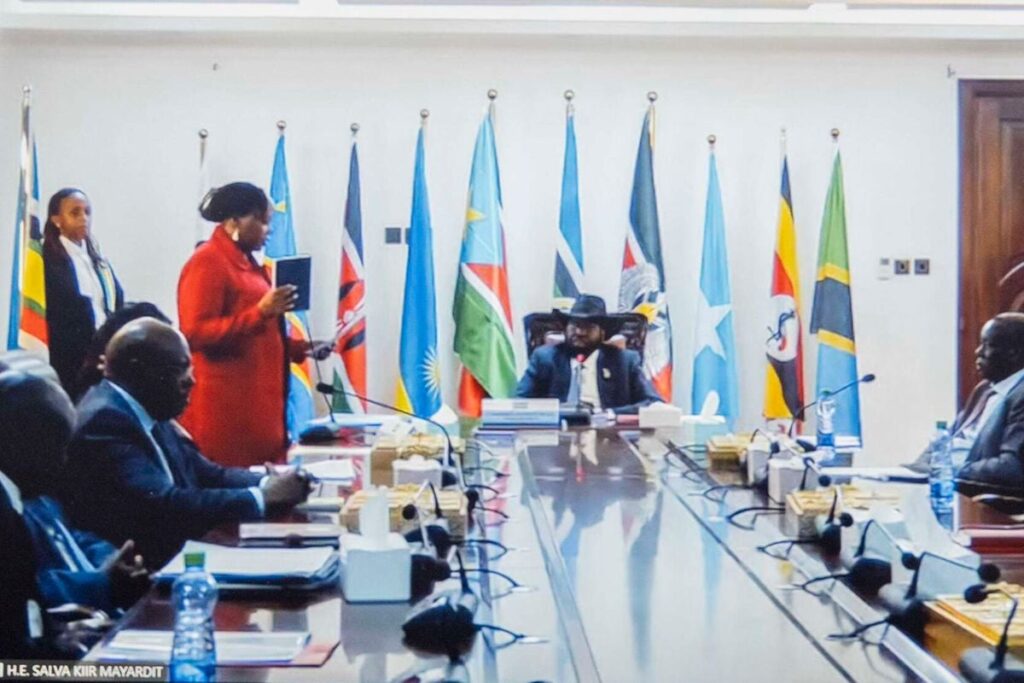Kenya is eyeing new market opportunities in South Sudan as Juba plans to host the East African Community’s major meeting of entrepreneurs.
The 24th Micro, Small, and Medium-sized Enterprises (MSMEs) Trade Fair next week means South Sudan could market its opportunities to businesspeople in the region.
But for Kenya, it presents a virgin market for its MSME products driven by its growing demand for essential goods and services amid ongoing reconstruction efforts.
This year’s event will present an opportunity for over 300 Kenyan MSMEs to further understand the emerging market dynamics and business practices to facilitate business linkages for increased trade in manufacturing, logistics, food, infrastructure, pharmaceuticals, and building among other sectors.
“Since South Sudan’s manufacturing sector is yet to be fully exploited, there is a reliance on imports, offering Kenyan MSMEs a strategic opportunity to fill market gaps and take advantage of the unexploited opportunities,” said Wycliffe Oparanya, Kenya’s Cooperatives Cabinet Secretary when he launched the country’s National Organising Committee for Trade Fair in Juba.
“As a neighbouring country, Kenya enjoys logistical advantages, making it well-positioned to supply a range of products, including food, machinery, building materials, pharmaceuticals, and consumer goods. With ongoing infrastructure development, the demand for building materials, vehicles, and industrial equipment is rising.”
The EAC undertakes MSMEs promotion through bringing together different artisans from all the partner states under the annual EAC MSMEs Trade Fair, formerly known as the EAC Jua Kali Nguvu Kazi Exhibition.
“Additionally, the country’s growing population and urbanisation are driving increased consumption of processed foods, electronics, and household items,” Mr Oparanya said as he urged Kenya’s MSMEs to venture into South Sudan.
“This year’s trade fair thus serves to give exceptional commercial prospects for exploiting new market frontiers and showcasing regional brands of both goods and services, providing further momentum to the EAC integration process.”
Financial instruments
The EAC now has eight members, after the Democratic Republic of Congo and Somalia joined in quick succession over the last two years.
They joined Kenya, Uganda, Tanzania, Burundi, Rwanda and South Sudan. It means the EAC has expanded the regional market to approximately 300 million people, with a combined GDP of Sh45.24 trillion ($312 billion).
According to the EAC Secretary-General Veronica Nduva, there is a growing need to explore climate finance opportunities under the East African Sustainable Growth (EASG) framework and supporting the establishment of dedicated financial instruments such as low-interest loans, grants, and venture capital targeted at SMEs, whose initiative will require active engagement with the private sector.
“We are also working to increase awareness and integrate MSMEs into the regional compliant trader programme, which has effectively reduced fraud and delays,” said Ms nduva when she was hosted recently by the private sector from the region.
The Trade Fair was last year hosted by Bujumbura, had over 1,000 participants AC for the purpose of opening up new market frontiers for their products and at the same time bridging-up the technological gaps between them.
The Trade Fair is organised by the EAC Secretariat in collaboration with the Confederation of Micro and Small Enterprises Organization (CMSEO – EA) and the Partner States.
This article was originally published by a www.theeastafrican.co.ke . Read the Original article here. .


